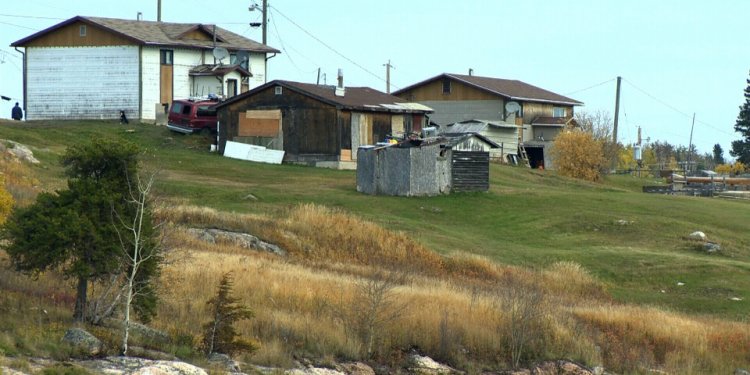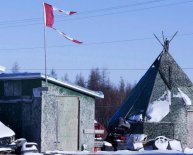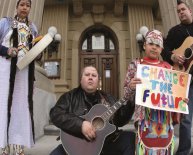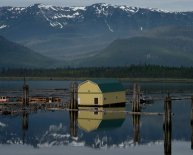
Canadian Aboriginal reserves
By Robert Laboucane Guest Columnist
With a nationwide work shortage upon us across Canada, some businesses are expecting the availability of qualified Aboriginal employees to-be an element of the answer.
Aboriginal people desire to be included. From business’s point of view, they must be included.
National Inuit Leader Mary Simon, president of Inuit Tapiriit Kanatami, joined forces with Canada’s four various other Aboriginal frontrunners and provincial and territorial premiers on Aug. 4 in 2010 to inquire of Prime Minister Stephen Harper to convene a primary Ministers’ Meeting on Aboriginal education within a-year.
These days you will find 518 schools on very first countries reserves in Canada. Very first Nation schools on reserves would be the responsibility of this federal government. Therefore, it is reasonable to think that knowledge is critical to enhancing the personal and financial strength of Aboriginal men and women and their communities to an even enjoyed by various other Canadians.
So, why is this maybe not taking place?
Moms and dads of First Nations pupils on reserves present the fear that kids are neglecting to develop an optimistic feeling of their identification and that curricula rarely reflects their particular children’s real history, diverse countries and languages and their particular contributions to Canada.
It is possible there may be court challenges regarding curricula that omit the feeling and histories of Aboriginal folks. The us government statements the Human Rights Act is applicable only to the distribution of government services, and never on financing choices that fundamentally determine the type and quality of services that may be supplied.
Nationally, but the training system in general is a failure Aboriginal pupils.
The Canadian Centre the Study of residing guidelines calculates that $71.1 billion is going to be added to Canada’s economic climate if Aboriginal individuals attain exactly the same academic amounts as various other Canadians. We can not manage to lose another generation, so why all of the energetic opposition and underfunding of Aboriginal knowledge, especially when someone considers the great populace development in Aboriginal communities.
Provincial schools are compensated significantly more than two fold that of on reserve schools for pupil tuition. Within the last decade these on-reserve schools: training funding increased 19 per cent, while in the exact same duration provincial methods capital enhanced 45 percent.
In 2006-07, the Elementary/Secondary knowledge system supported 120, 000 students, 518 schools and 45 post-secondary establishments with a budget of $1.2 billion, that will be normally $2, 000 less per pupil than provincial student financing.
Indian and Northern Affairs Canada (INAC) underfunds the education of kiddies in kindergarten to Grade 12 just who attend schools on reserves or just who attend provincially-run schools off reserve. The department of Indian matters promises they just do not know perhaps the present investing of $1.2 billion has been used for the purpose intended.
Aswell, INAC underfunds very first Nations post-secondary training. This year’s budget is $400 million for around 27, 000 First Nations post-secondary pupils. The amount of qualified Aboriginal post-secondary students surpasses the spending plan, so candidates are turned away. During 2009, above 5, 000 eligible First Nations students were rejected post-secondary money.
So here is how it works: initially you develop a money gap, and after that you get a real preparedness space. This, subsequently, provides the government, our nation and Aboriginal men and women an achievement space after which, of course, we end up getting the awful socio-economic gap.
Ninety percent of preschool Aboriginal children do not have usage of proper very early childhood knowledge.
Today, 54 percent of all of the Aboriginal young ones are in the care of federal government companies.
In the last fifteen years there is no measurable improvement for on-reserve highschool conclusion rates.
Statistics Canada reports that in 2006 there was 78, 325 First countries young ones aged six to 14 lifestyle off book in Canada which presents two % of all of the Canadian young ones within age-group. These age brackets of off-reserve students tend to be as likely as all Canadian children is successful in school.
Research reports indicate your parents of 90 percent of off-reserve First Nations kiddies assented or strongly decided that their particular child’s college provided adequate info on their particular child’s scholastic progress, attendance and behavior. The moms and dads were pleased with quantities of discipline, the grade of teaching and accessibility to extracurricular tasks. Remember that all this are at off-reserve schools, publicly funded and handled. In addition, by living off book your family incomes tend to be greater and pupils in domiciles with higher incomes merely out-perform those located in impoverishment.
But 41 % of very first Nations childhood living off reserves try not to finish their secondary training. Interestingly, 41 percent of First Nations young ones residing off reserves live-in solitary parent people.














